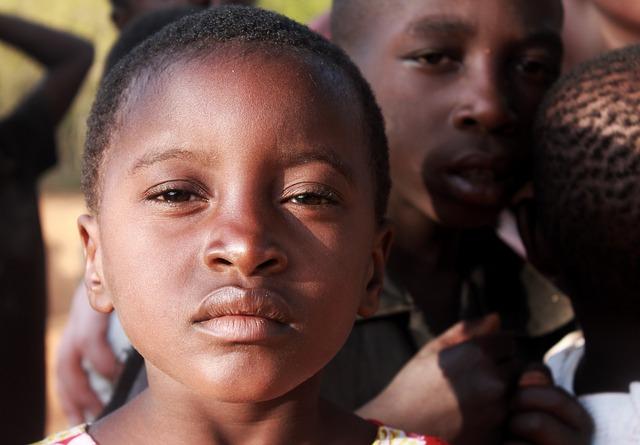In a significant development for public health in Africa, researchers have initiated clinical trials for a smallpox medication aimed at treating Mpox, formerly known as Monkeypox. The Africa Centres for disease Control and Prevention (Africa CDC) is at the forefront of this effort,which could provide a pivotal response to the rising incidence of Mpox cases across the continent. As health officials and researchers work to understand the implications of this potential treatment, the exploration of smallpox therapeutics signifies a promising step in the ongoing battle against infectious diseases that threaten communities in Africa. This article will delve into the specifics of the clinical trials, the anticipated impacts of the drug, and the broader implications for public health as the continent grapples with Mpox outbreaks.
Emerging Promises of Smallpox Drug in mpox Treatment
The exploration of a smallpox antiviral drug in the treatment of mpox holds promise for strengthening the therapeutic landscape in Africa. As cases of mpox continue to rise, public health authorities are turning their attention to innovative solutions that could enhance patient outcomes. Preliminary findings from ongoing clinical trials indicate that the drug may not only shorten the duration of the symptoms but also reduce the viral load significantly. Researchers are encouraged by the potential of this treatment to mitigate the impact of mpox, particularly in regions with limited healthcare access.
In addition to evidence supporting its efficacy, the smallpox drug’s dual-purpose nature adds an significant layer to its appeal. Amidst concerns about the spread of mpox, the drug could perhaps serve as a key asset in outbreak response strategies. Key advantages of this therapeutic approach include:
- Rapid Response: Fast deployment in outbreak settings.
- Widespread Use: The existing knowledge of smallpox treatments facilitates easier training for healthcare workers.
- Resource Efficiency: Utilization of smallpox medicine may conserve essential resources in healthcare systems stretched thin.
Research is ongoing, and as data emerges, it is anticipated that health officials will have a clearer roadmap for effective mpox interventions.

Examining the Clinical Trial Processes Across Africa
The landscape of clinical trials in Africa presents a unique set of challenges and opportunities, particularly in the context of public health crises like the recent surge in mpox cases. As countries on the continent increasingly become sites for innovative drug trials, understanding the regulatory frameworks and operational capacities is crucial. Many African nations are now adopting international best practices, yet region-specific cultural and logistical considerations require tailored approaches. This is essential for the development of effective treatments that resonate well within the communities they aim to serve.
Key components influencing the effectiveness of clinical trials in Africa include:
- Regulatory Frameworks: Each country has its own set of regulations that govern clinical trials, affecting timelines and approval processes.
- Community Engagement: Involving local populations in the design and implementation of studies can enhance trust and recruitment.
- Infrastructure: Variability in healthcare infrastructure can impact both trial logistics and patient care during studies.
- Data Management: Collection and analysis of data must be streamlined to ensure reliability and validity of trial results.
To further illustrate the progress and hurdles faced,the following table summarizes recent initiatives and their impacts:
| Initiative | Impact | Region |
|---|---|---|
| Partnerships with Local institutions | Enhanced recruitment and retention of participants | East Africa |
| Capacity Building Workshops | Improved skills among local researchers | Southern Africa |
| Public awareness Campaigns | Increased understanding of clinical trial benefits | West Africa |

The Role of African Researchers in Global Health Solutions
The involvement of african researchers in the quest for global health solutions is increasingly recognized as vital for addressing health challenges on the continent and beyond. These researchers bring localized insights and a deep understanding of the socio-economic and cultural factors that impact health outcomes. Their contributions are particularly evident in initiatives like clinical trials for smallpox drugs targeting Mpox, where their expertise ensures that interventions are culturally relevant and effectively meet the local populations’ needs. By leveraging indigenous knowledge alongside scientific innovation, African researchers play a crucial role in shaping effective health strategies that resonate within their communities.
Moreover, collaboration among African researchers and international health organizations fosters an surroundings conducive to knowledge exchange and innovation. This synergy not only enhances the efficacy of health interventions but also empowers local scientists, enabling them to lead groundbreaking studies. Key areas of focus include:
- Epidemiology and outbreak response
- Vaccine development and distribution strategies
- clinical trials for emerging infectious diseases
- Health policy formulation and analysis
Efforts to bridge the gap between research and policy are crucial for ensuring that findings translate into practical solutions. As African researchers continue to drive innovation within the healthcare sector, their role in global health will only expand, paving the way for more resilient and responsive health systems across the continent.

Addressing Potential Barriers to access and Distribution
Access to crucial healthcare interventions, such as the smallpox drug under investigation for treating Mpox, often encounters various challenges that must be addressed to ensure equitable distribution in Africa. Among these barriers are economic constraints that limit funding for research and development and also infrastructure limitations that hinder the effective delivery of medications to remote areas. Additionally, cultural perceptions regarding health interventions can result in resistance from communities, making it essential to engage local leaders in the conversation to foster understanding and acceptance.
Moreover, regulatory hurdles can slow down the approval process for new treatments. It is indeed vital to create streamlined pathways that facilitate efficient approval and distribution while ensuring safety and efficacy. A coordinated response involving governments, NGOs, and the private sector is necessary. Below is a table summarizing key stakeholders and their roles in overcoming these barriers:
| Stakeholder | Role |
|---|---|
| Governments | Develop policies for equitable distribution |
| NGOs | Educate communities and advocate for access |
| Pharmaceutical Companies | Invest in manufacturing and supply chains |
| local leaders | Promote awareness and reduce stigma |

Future Implications for Mpox Control in endemic Regions
The triumphant deployment of a smallpox drug in clinical trials has significant implications for Mpox control in regions where the disease is endemic. as communities in Africa face the challenge of Mpox outbreaks, the availability of an effective antiviral treatment could transform public health responses, leading to more rapid containment efforts. Key considerations for the future include:
- Increased Surveillance: Enhanced monitoring systems can be established to quickly identify and respond to Mpox cases.
- Vaccination Strategies: The use of smallpox vaccines may be re-evaluated alongside antiviral treatments to provide a multifaceted approach to disease management.
- Community Education: Informing populations about the disease and treatment options can empower local communities and reduce stigma.
- Healthcare Resources: Investment in healthcare infrastructures will be critical to support the distribution of treatments and vaccines.
Moreover, collaboration between international organizations and local governments will play a crucial role in effective Mpox control. It is indeed essential to address challenges such as:
- Access to Medicines: Ensuring that the antiviral treatments are accessible and affordable to all populations at risk.
- Research and Development: Ongoing studies are necessary to adapt treatments to different strains of the virus and potential mutations.
- Policy Development: Formulating policies that integrate the new treatments into national health programs can foster resilience against future outbreaks.
| Aspect | Importance |
|---|---|
| Surveillance Systems | Early detection of outbreaks |
| Community Engagement | Reducing misinformation |
| Healthcare Investment | Improved treatment access |

Recommendations for Strengthening Public Health Responses
To effectively combat the spread of Mpox in Africa, a multi-faceted approach that enhances public health capacities is essential. Health authorities should prioritize community engagement and education to ensure accurate details dissemination about Mpox and its prevention. Initiatives could include:
- Health Workshops: Conduct regular sessions featuring expert-led discussions on the nature of Mpox, its transmission, prevention techniques, and the importance of vaccination.
- Collaborative outreach: Partner with local leaders and health organizations to develop culturally appropriate health messaging.
- Telehealth Services: Expand access to digital health resources to provide timely consultations and support for affected communities.
Supporting research and collaboration among public health entities will bolster response efforts. Investment in local research initiatives is crucial to understanding the unique dynamics of Mpox and emerging variants. Proposed strategies include:
| Strategy | Description |
|---|---|
| Data Sharing Platforms | Establish secure databases for real-time sharing of epidemiological data across regions to inform timely interventions. |
| regional Partnerships | Create alliances among African nations for resource sharing, expertise exchange, and joint training programs. |

In Retrospect
As the fight against mpox continues to intensify in Africa, the advancement of clinical trials for a drug initially developed for smallpox marks a pivotal moment in public health efforts across the continent. With the potential to significantly mitigate the impact of this viral disease, ongoing research is not only a testament to medical innovation but also highlights the importance of global collaboration in addressing health crises. As clinical trials progress, the promise of new treatment options brings hope to affected communities and underscores the critical need for continued investment in healthcare infrastructure and disease prevention strategies. Stakeholders will be watching closely as results emerge, eager to see how this breakthrough could reshape the landscape of infectious disease management in Africa and beyond.







